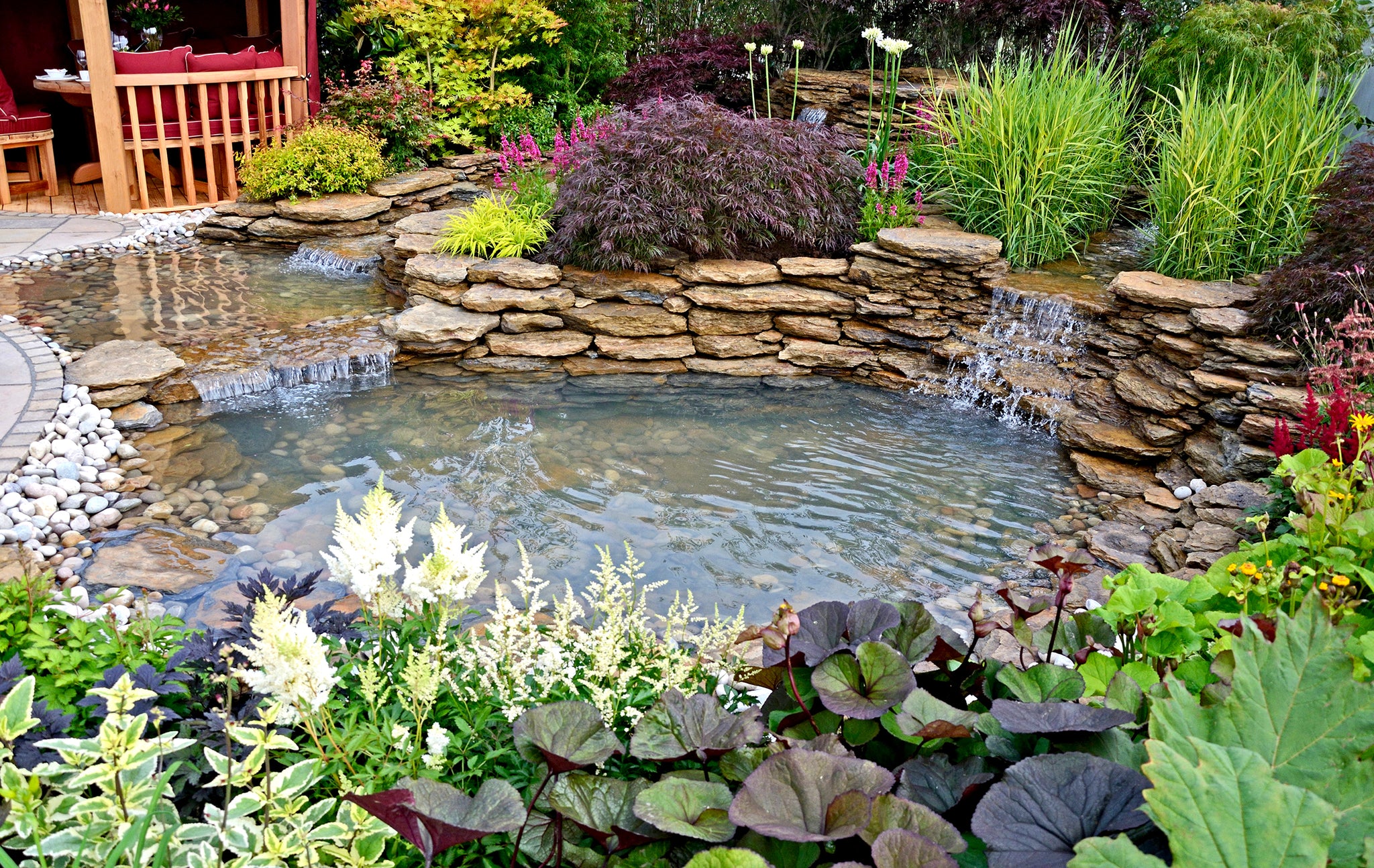
Your pond in the cooler months
Anyone who has had a pond for even the shortest time will tell you how quickly it becomes its own little ecosystem. A well-cared for pond, or water garden if you prefer, is one where you are managing that ecosystem, working with it to your advantage and making sure it doesn’t fall out of balance. If it does you may start to develop problems with water quality and oxygen levels.
Your ponds ecosystem
At the simplest level your pond’s ecosystem is comprised of the water itself, the plants, any fish you’ve added and the creatures that drop-in like frogs, dragonflies and their nymphs and fascinating little aquatic insects like water beetles. This is just the conspicuous stuff. What you don’t see are the literally billions of micro-organisms that do really important work like converting fish and plant waste into elements that can be taken back up by your pond plants as nutrients, fertiliser, helping to keep your water clear and clean.
By keeping water circulating and cascading from fountains or water falls we are adding all-essential oxygen to the water that helps keep this ecosystem rolling along. In many respects the biological processes that happen in your pond are very similar to those that take place in your garden and the soil and, just like your garden, to keep it performing at its peak you need to give it a little help.
What to do next
A lot of the most important work you can do for your pond actually happens in the cooler months, in many respects the opposite of what you do for your garden at this time of year.
As the weather cools the metabolic rates of all of the animals, plants and microorganisms in your pond decrease. This is a totally normal seasonal response. The fact is that in many respects your pond needs a higher level of activity through these cooler months and that’s where you come in.
Those microorganisms that convert organic matter of various sorts in your pond are decreasing in both activity and number. The issue is that the amount of material that needs to be ‘digested’ doesn’t drop by an equivalent amount and your pond will be receiving extra loading from Autumn and Winter leaf fall.
This means there’s a very real potential that your pond may become overloaded with waste material, increasing the likelihood of an anaerobic zone in your pond bed, this is an area that’s deprived of oxygen. The give-away is if you pull up material from the pond bottom and it is very smelly, often described as smelling like rotten eggs. This can dramatically influence the chemistry of your pond-water potentially causing a host problems for fish and other creatures and plants. The solutions though are actually all pretty simple and easy.
Reduce the waste
Keep on top the material that’s falling into your pond by physically clearing it out. A plastic leaf rake with a small head can be very useful for this but take care you don’t damage plants or catch on pump hoses or leads.
A very useful tool at this time is the PondMAX stainless steel fish net. These robust nets have been designed to work as leaf scoops, just like a larger leaf net used in a swimming pool, it’s ideal for capturing floating debris.
If you have an excessive build-up of sludge this can be easily removed with the hose-end PondMAX Pro Pond Vacuum. It connects to your garden hose and when turned on a venturi action is created syphoning up fine and silty material from the pond bed. If you want to take things to the next level then consider investing in a PondMAX PV350L Pro Pond Vacuum. This is a unique, super-powerful, wet-dry type barrel vacuum that will allow you to easily vacuum up debris from your pond base and from water features and cascades.
Boost the bacteria
As all those beneficial microorganisms in your pond will be suffering a degree of natural attrition thanks to the cooler weather and this means that natural processing of remaining materials will be reduced. You can reverse this by topping up those microorganisms.
This process is no different to how you might take a pro-biotic supplement yourself or you apply a pro-biotic product to your garden – just add fresh bacteria! Just add PondMAX Pond Clarifier Bacteria to your pond at the recommended rates and intervals. This will top-up those populations of microorganisms and help to keep the sludge away.
General tips
It’s important that you keep your pump filters clear and clean too. If you are using a pre-filter block on your pump then give the sponge a gentle rinse in a bucket of pond-water every month or so. If you have a more advanced pressure filter system then make sure you are back-flushing it on a regular basis to keep it flowing efficiently.
This little bit of cool season care is a great excuse to get out and enjoy your pond and the outdoors in the cooler months and it will ensure that when Spring comes around your pond will be ready to splash back to life in pristine condition.
By Adam Woodhams



